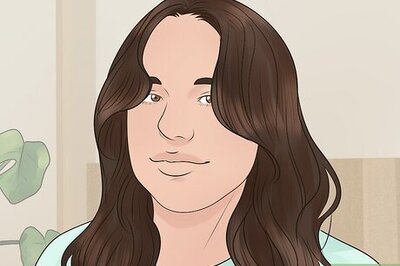
views
New York: Former IMF chief Dominique Strauss-Kahn will plead not guilty on Monday to charges he tried to rape a New York hotel maid, an accusation that has wrecked his chance of becoming France's next President.
Strauss-Kahn, 62, faces up to 25 years in prison if convicted on charges of a criminal sexual act, attempted rape, sex abuse, unlawful imprisonment and forcible touching.
His lawyer, Benjamin Brafman, told Reuters that Strauss-Kahn will plead not guilty to the charges in New York Supreme Court before Judge Michael Obus on Monday.
Here's what happens next:
Pretrial
Once Strauss-Kahn pleads not guilty, the case moves into its pretrial phase. Obus will set a date on Monday for pretrial motions.
New York law allows up to 45 days after arraignment for defence motions. The prosecution then has time to respond to the motions and the judge will eventually rule on them. That process can take between two and three months, experts say.
The two sides are likely to wrangle over discovery; defence lawyers may seek evidence that the prosecution deems out-of-bounds, such as the alleged victim's prior medical history, said John Moscow, a former New York prosecutor.
The defence might explore whether Strauss-Kahn has a history of aggressive behavior toward women, experts say.
After ruling on such motions, Obus will set a trial date. Daniel Arshack, a defence lawyer in New York, said it was likely the trial would take place sometime around September. After Monday's arraignment, Strauss-Kahn may not appear in court until the trial.
The trial
Jury selection can take time, given difficulties finding jurors unfamiliar with the case, which has drawn exhaustive coverage in New York's tabloids. Once a jury is picked, the trial could be relatively quick; there are few witnesses, and the charges are uncomplicated.
It could take longer if the state is permitted to introduce examples of other alleged incidents involving Strauss-Kahn. If not, the trial may be over in a few days, Arshack said.
The trial is likely to turn on testimony by Strauss-Kahn and his alleged victim, a 32-year-old housekeeper from Guinea.
Thus far, prosecutors say the woman's story has been unwavering. But Strauss-Kahn's lawyers, who have hinted they will argue that any sexual encounter was consensual, have suggested they have evidence that undermines the woman's account of a forcible assault.
If convicted on the most serious charge, criminal sexual act in the first degree, Strauss-Kahn faces up to 25 years in prison. Since he has no prior convictions, defence lawyers said he would likely receive a shorter term.
Plea deal
In theory, the prosecution and the defence could reach a plea deal at any time, in which Strauss-Kahn would plead guilty to some of the charges in exchange for the promise of a reduced sentence. Some analysts predict he will seek a trial rather than any deal in an effort to avoid prison and rescue his reputation.
Alleged victim wavers
There is nothing to suggest the alleged victim has had second thoughts about testifying but if she did, it would be a serious challenge to the prosecution. Still, prosecutors could subpoena her to testify and the state could introduce the statements she made to hotel employees and police officers immediately after the incident.
Normally the hearsay rule prohibits previous out-of-court statements but her comments could be admissible under the "excited utterance" exception, which allows unsworn statements made spontaneously after a shocking event to be submitted as evidence. Prosecutors also could proceed without her testimony altogether, relying on the physical evidence collected at the scene, for instance. Often prosecutors are forced to do so in domestic violence cases, where witnesses frequently change their stories.















Comments
0 comment